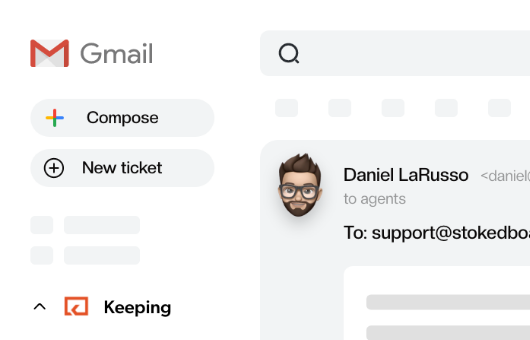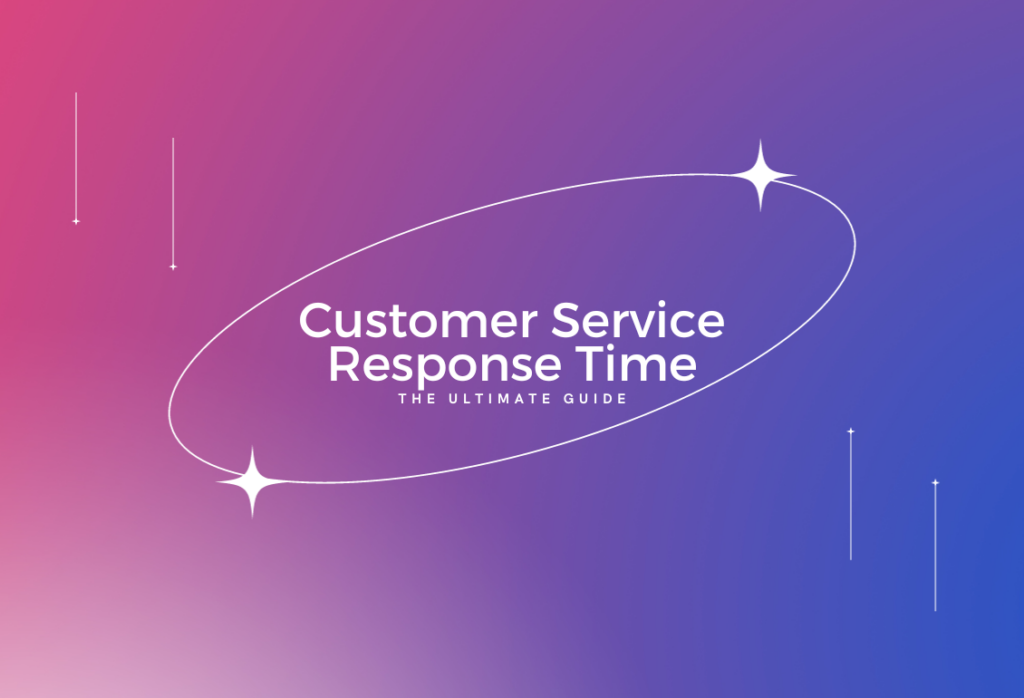
Assigning Tasks: How to Delegate Effectively
There are certain projects that could never be completed if they weren’t broken down into individual tasks, especially those of a certain size and complexity. As soon as your team grows bigger than one or two people, you need to make use of the ability to assign tasks to achieve your goals.
There are some customer service superheroes out there who seem to be able to complete all the tasks themselves. But the reality is that most of us need to learn the skill of assigning tasks to others, especially if we are in positions of responsibility in busy customer service teams. This is to ensure that no single person is burdened with the workload, or high-performers are being unfairly assigned a larger proportion of the work available.
Assigning tasks is essential for high-performing customer service teams that must juggle multiple priorities.
Anyone who has any experience working in a customer service team understands task assignments, which helps you to get projects completed, customer queries solved and objectives fulfilled. It’s naturally much quicker and more efficient to have multiple employees working on different tasks that make up a project, utilizing their unique skills and experiences to come up with creative solutions.
Without assigned tasks, projects would never get completed because teams are not working to their full capacity. Some customer problems could never be resolved because they require the contributions of different customer service representatives. Assigning tasks needs to be deliberate since it requires the coordination of multiple members of a team.
What is task assigning?
Task assigning means allocating and delegating tasks to members of your team for effective project management. The task assigner is aware of the various strengths and weaknesses, skills and experience of individuals and can assign them tasks in pursuit of greater productivity.
You need to be able to break down projects into component parts so that each individual may contribute to the greater whole. Usually, you will use task tracking or project management tools that can help your team manage their assigned task, and can even offer customer service automations that make assigning tasks easier.
When assigning tasks is implemented effectively, each team member knows who is responsible for what and when tasks are due. This helps prevent conflicting priorities. Each task must come full circle, with each assignee receiving constructive feedback on how well they have completed the task.
Even if you assign a task to another team member, they are still reporting into the task owner for approval.
The importance of efficient task assignments
Efficient task assignment means that customer service teams can work to their full productivity, since each team member understands what they are responsible for. Your task description can break each task down so service reps fully understand the steps they need to take to complete the task, and have access to the resources they might need to be successful. Employees perform better when they are trusted with tasks that help them stretch and grow.
The entire purpose of a team is to enable different employees to work together effectively and create outcomes that are greater than the individual contributions. Customer service teams that have a plurality of perspectives from multiple people are more creative. A diversity of perspectives contributes to more creative solutions as people with different backgrounds collaborate together.
Projects are completed much more quickly when you have multiple team members handling all your employee tasks, instead of one person trying to do everything on their own. Task assignment means team members who have both the time and experience necessary to complete the task can all have a role to play.
Effectively assigning tasks to individual team members gives them a chance to stretch themselves and engage in more professional development. New tasks give more junior customer service reps the opportunity to step outside of their comfort zone, and complete different types of work that may otherwise not come across their path.
There are many benefits to task assignment, not least because it allows the entire team to share the workload.
The difference between assignment and delegation
While they might at first glance seem to be similar, there is a big difference between task assignment and delegation. Assignment means you assign tasks to a team member and explain exactly how you want things to be done, with clear-cut instructions. Delegation means you are transferring responsibility for the task to your assignee and giving them more autonomy for how that task gets completed.
Assigning tasks is often repetitive but it nevertheless contributes to the overall completion of the project. A delegated task is more free and gives your team members the opportunity to grow as they figure out how to produce the desired results. Task delegations are based more on outcomes than specific instructions, with the employee figuring out how to complete the task on their own.
Although task delegation is more autonomous, it nevertheless still requires support from the manager to ensure that the employee has adequate direction. Delegating a task doesn’t mean the manager no longer has anything to do with it, but simply that they are trusting their assignee to take ownership.
Choosing whether or not to assign or delegate a task means understanding the complexity of the task to be assigned.
How to assign tasks to team members
Try to remove yourself from the approval process
When a supervisor assigns tasks to employees, they themselves can become a bottleneck as service reps turn to them for approval during every stage of completing the task. When multiple team members are waiting for sign-off from the same customer service manager, you find that you haven’t actually reduced your workload and you end up micromanaging your assignees.
When managers are too involved, projects lose momentum as the individual contributors end up waiting around for approval when they could be spending their time on more productive tasks. Customers are kept waiting as individual queries can’t progress without the authority of a manager.
In order to avoid this problem, you can select a group of dependable people who are responsible for the approval process. Delegating responsibility means that you can be more hands-off in the task completion process, while being assured that the work is being completed to a high standard. Schedule regular team meetings to go over the progress of each task and keep your eye on the ball.
Effective teamwork only happens when customer service supervisors feel secure enough to let the task go.
Make your expectations explicit
Unfortunately, we can all fall into the trap of assuming that other people are mind-readers. In reality though, if you don’t give clear instructions to your team members then you’re unlikely to get the result you want. You need to look at your task titles and outlines from the perspective of an outsider in order to formulate clear instructions.
If you want to better formulate tasks for your team members, break the task down into steps and give time estimates for each step. The more information the better, if you want to empower employees to complete tasks on their own. When employees are informed, they don’t have to waste time referring back to you for more clarity.
There’s a fine line between clarity and micromanaging. Once you have assigned the task, don’t keep pestering your service rep to check whether they are doing it right. If you’ve given clear instructions, they should be able to complete the task to the best of their ability.
At the same time, ensure that your employee knows they can always turn to you for help during the task, to guard against failure.
Set an objective time frame for completion
When employees are assigned tasks, they need to be made aware of the deadline for completion or the task could run on forever. It’s not enough to vaguely say “As soon as you get to it” because some critical customer issue is bound to come along.
It’s best to actively involve your customer service reps in their time frame for completion, since they are the ones who know best how long it will take them to finish certain tasks. When employees are involved in setting their own deadlines, they are more accountable and more likely to make an effort to meet it.
If an employee is aware of a deadline, they can let you know if competing priorities have materialized and whether the deadline may need to be reevaluated. It’s best to flag these issues as soon as possible, before they affect the overall progress of the project.
Without hard deadlines, projects will never get finished as every step gets continually put off until tomorrow.
Hold your employees accountable
When assigning tasks to employees, make sure that they can account for their working hours somewhere that is publicly accessible to the team. You can use time tracking software that will help other team members understand exactly how someone is progressing with their task and hold that individual accountable.
If employees are held responsible for their tasks, the project is much less likely to get derailed since you as the customer service manager can become aware if someone is falling behind. If your employee’s current progress looks like they might not meet their deadline, then you can ask them if they need extra help or support.
Tracking your team’s performance can also help you identify the high-performers and who might be available for extra work. You might also see when team members are spending time on unnecessary tasks that don’t contribute to the progress of the project. Teams will be more efficient when they know exactly where time is being spent.
If you don’t track your team’s hours, you won’t have visibility into your projects and their rate of completion.
Assign tasks to the right person
There are several reasons why you might choose a particular person to assign a task to, starting with their relevant skills and experience. When assigning tasks to someone, you want to know that they have the right capabilities to complete the task without too much support from the manager.
Secondly, you want to know that the person you assign the task to has enough time to complete the task. It’s no good assigning tasks to someone who is already overburdened with customer tickets and won’t be able to give your task the due care and attention.
Thirdly, you might consider assigning tasks to someone who is in need of development opportunities. Perhaps there might be someone more skilled for the task out there, but you want to give this service rep a chance to learn new skills. In this case, you can assign the task while offering extra support for their professional development.
Multiple factors come into play when it comes to deciding which person to assign a task to, so make sure you give each one enough consideration.
Relate each task to a wider perspective
When an employee is assigned a task, it might seem insignificant and menial which will cause them to lose motivation. In order to keep employees excited about completing tasks, relate it to the wider perspective and explain how it helps to meet overall objectives. No task is too small or you wouldn’t be including it in your project in the first place.
Showing employees how their work has an impact influences them to become more committed to the task. Employees are more engaged and happier at work when they understand how their contribution has a place, and that they are improving the lives of others in their team or of their customers.
If you can’t see how each task fits into the bigger picture, then perhaps it shouldn’t be included at all. Every task should advance your goals and contribute to the progress of the project.
If it’s not clear how a task fits into the broader picture, try to imagine what would happen if that task was left incomplete.
Offer feedback on tasks
Every customer service rep needs to understand their performance, whether the feedback is positive or negative. If an employee has no feedback, they have no idea how their work has impacted the team or whether their task has been successful. Without feedback, employees can’t improve and become more productive members of the team.
Providing your service reps with feedback means they can move onto progressively harder tasks that help them with their development. Even negative feedback can provide motivation to improve as the employee understands exactly what they did wrong with the task.
While providing feedback does take some time on the part of the customer service manager, it’s the only way that your team members can become more effective, able to take on more complex tasks that would normally go to more senior members of the team.
Be sure to phrase your feedback constructively to avoid demoralizing the team.
Wrapping up
Customer service teams that master the art of effective task assignment are more productive, more creative, and have better solutions than their counterparts who can’t assign tasks. In an efficient customer service team, everyone should know what is expected of them and how their work contributes to the whole.
There are certain projects that could never be completed if they weren’t broken down into individual tasks, especially those of a certain size and complexity. As soon as your team grows bigger than one or two people, you need to make use of the ability to assign tasks to achieve your goals.
Task assignments should be clear, detailed and accountable, with hard deadlines for completion.
Effective teamwork means you can accomplish more than you could as individuals, and assigning tasks is a big part of working together. With transparency and accountability, managers can monitor how everyone is adding to the project.
Join 150+ teams that are sharing inboxes with us
The easiest way to upgrade your shared Gmail account. There’s no credit card is required.






